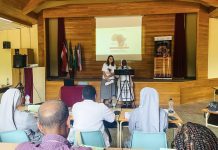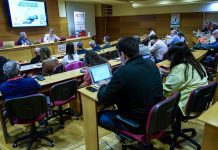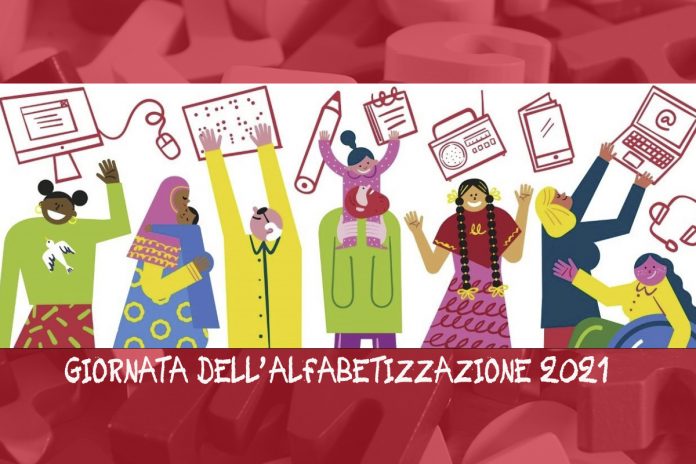Roma (Italia). International Literacy Day (ILD) is celebrated on 8 September 2021, established in 1966 by the United Nations Educational, Scientific, and Cultural Organization (UNESCO) to remind the international community of the importance of literacy for individuals, communities, and societies, and the need to invest in education.
The theme of the Day 2021 is Literacy for a human-centred recovery: Narrowing the digital divide.
The Covid-19 pandemic caused an unprecedented disruption in the learning of children, young people, and adults, amplifying inequalities in access to literacy opportunities. Numerous literacy programs were interrupted in the normal way of carrying them out.
Despite the commitment of Governments and Organizations in guaranteeing the continuity of education with distance learning, children, young people, and adults who are not literate, with disadvantages related to poverty, gender, social status, ethnicity, language, disability, and geographic location, were most affected by the effects of the pandemic.
The rapid shift to distance learning modes also highlighted the digital divide in terms of connectivity, infrastructure, and the ability to interact with technologies. According to the International Telecommunications Union, almost half of the world’s population (3.7 billion) does not use the Internet, especially in countries where urban-rural disparities and the supply of electricity continue to be a limit.
For distance learning, digital skills are also required, which involve complex cognitive processes, with an adequate level of reading and writing skills. The recovery phase in the literacy paths of young people and adults should, therefore, be integrated into local contexts with national strategies and plans with a view to lifelong learning.
Literacy is one of the goals of the Agenda 2030 sullo sviluppo sostenibile:
Objective 4 – Provide quality, equitable and inclusive education, and learning opportunities for all. Through a video, Elyx, digital ambassador of the United Nations, presents 10 objectives to ensure inclusive and quality education for all young people and adults and to promote lifelong learning, contributing to human and social progress.
International Literacy Day 2021 will therefore explore ways to help build the foundations for a human-centered recovery, with attention to the interaction between literacy and digital skills required of young people and non-literate adults, for an inclusive use of technology.
To celebrate this Day, on 8-9 September 2021, a Webinar is planned in which: knowledge and experience will be shared regarding inclusive literacy programs based on technologies suitable for non-literate or low-skilled young people and adults. The interaction between literacy and digital skills will be explored and how to integrate them significantly into literacy programs. Six programs that have been awarded the 2021 UNESCO International Literacy Prizes will be presented. New modes of inclusive teaching will be considered within and beyond the context of the pandemic.
Pope Francis in the Video message on the occasion of the “Global Compact on Education. Together to look beyond”, on 15 October 2020, underlined the importance of an educational project on the net, to bring hope and social harmony:
“The goal of this educational investment, grounded in a network of humane and open relationships, is to ensure that everyone has access to a quality education consonant with the dignity of the human person and our common vocation to fraternity”.
International Literacy Day constitutes for the Daughters of Mary Help of Christians, who have Education as their mission, an opportunity to study deeply and promote literacy in the Schools and Education Centers of the different realities of the world in which they work in favor of integral education of children, young people, and adults, especially the poorest and most needy.
“It is time to look forward with courage and hope. May the conviction sustain us that the seed of hope dwells in education: a hope of peace and justice”.
(Pope Francis)




















